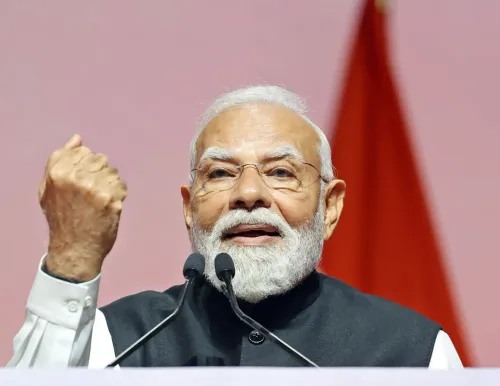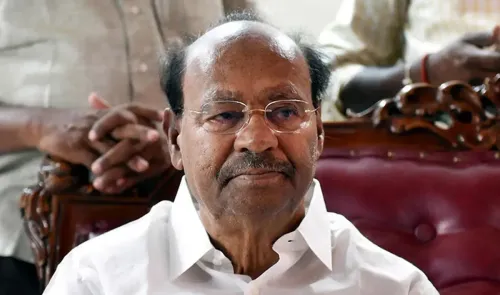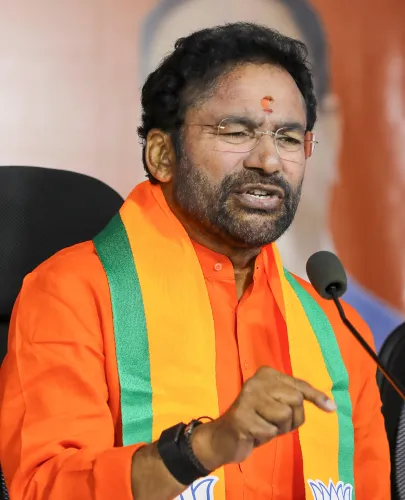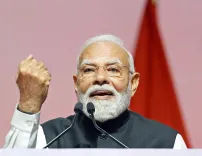Did LS Pass the Indian Ports Bill, 2025 Amidst Opposition Protests?
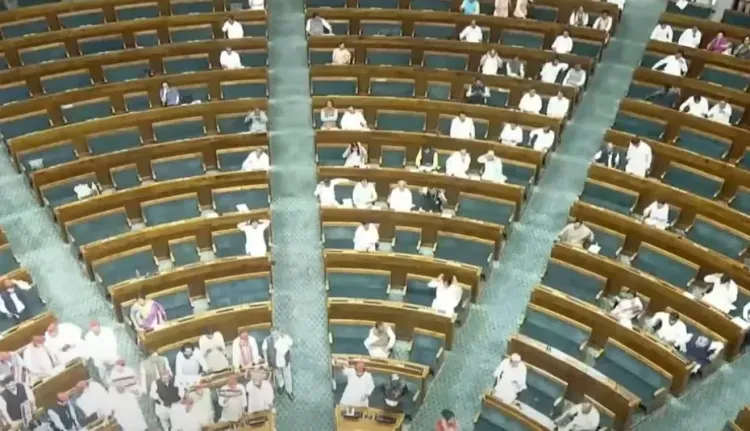
Synopsis
Key Takeaways
- Modernization of India's port legal framework.
- Establishment of the Maritime States Development Council.
- Emphasis on cooperative federalism in port management.
- Provisions for environmental protection and pollution management.
- Improved regional connectivity for trade.
New Delhi, Aug 12 (NationPress) The Lok Sabha on Tuesday approved the Indian Ports Bill, 2025 through a voice vote, effectively replacing the outdated Indian Ports Act of 1908. This decision unfolded amidst considerable ruckus and protests from the Opposition, which largely overshadowed the discussions.
The Bill, presented by Union Minister for Ports, Shipping and Waterways Sarbananda Sonowal, aims to modernize and consolidate the legal framework that governs India’s ports, focusing on cooperative federalism and strategic maritime growth.
As the House reconvened at 3 PM under the chairmanship of Jagdambika Pal, Sonowal was invited to introduce the Bill. He elaborated on its objectives, highlighting that it would enhance the ease of doing business, optimize the use of India’s coastline, and empower State Maritime Boards for better management of non-major ports.
Furthermore, he emphasized the Bill’s provisions for pollution management, disaster response, port safety, navigation, and data governance, ensuring alignment with India’s international obligations.
A significant aspect of this legislation is the formal establishment of the Maritime States Development Council (MSDC), previously operating since 1997 via executive notification. The Bill expands MSDC's role to encompass major ports under central authority, fostering a consultative framework between the Centre and coastal states. According to Minister Sonowal, the Council will provide advisory support for long-term planning, offer non-binding guidelines, and promote structured growth within the port sector.
Despite the Minister's statements, the debate was frequently interrupted by Opposition members who occupied the Well of the House, chanting slogans like “We want justice.” The Chair made several attempts to restore order, assuring all members they would have the opportunity to voice their opinions, yet his words were largely drowned out.
During the discussions, BJP MP Dilip Saikia (Darrang-Udalgudi, Assam) referred to ports as “engines of employment” and called for constructive engagement from Opposition members. He pointed out that port capacity had risen by 87 percent over the past decade under the Modi administration and stated that the Bill would establish new pathways to Southeast Asia, boosting regional connectivity and trade.
TDP MP Sribharat Muthukumilli (Visakhapatnam, Andhra Pradesh) also expressed support for the Bill, underlining its potential to enhance coastal infrastructure and empower state-level port authorities. BJP’s Darshan Singh Choudhary (Hoshangabad, Madhya Pradesh) echoed similar views, describing the legislation as a timely initiative for maritime reform. The Bill includes mechanisms for resolving port-related disputes and mandates conservation measures to protect port ecosystems.
Additionally, it addresses emergency preparedness, security protocols, and adherence to international maritime agreements. By passing the Bill, the government indicated its intention to reshape Centre-State relations in port governance, especially considering the changing political dynamics after the 2024 Lok Sabha elections. The cooperative framework embedded in the legislation is perceived as a response to coalition necessities and the need to accommodate regional aspirations, according to the minister, who urged the House to approve the Bill.
After the Bill’s passage by voice vote, the Chair adjourned the House until 4:30 PM.



